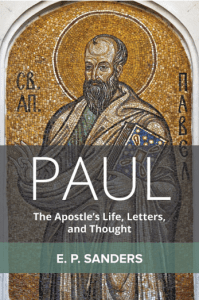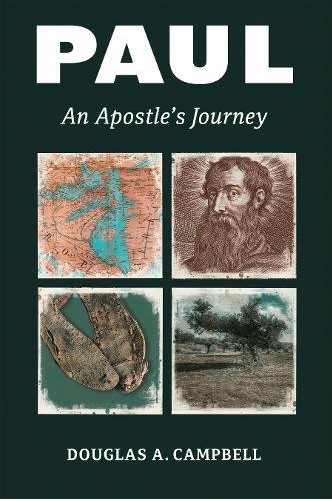 The apostle Paul was an immigrant, at least if we go with the earliest Christian traditions. His family moved from their nativeland, Galilee, to Tarsus, a major city in Asia Minor. He was a Jew surrounded by Gentiles, and hence lived a life in the diaspora of that time. We are looking at E.P. Sanders’ new book, Paul: The Apostle’s Life, Letters, and Thought, and he sketches life in the Jewish diaspora. Here are his generalizations:
The apostle Paul was an immigrant, at least if we go with the earliest Christian traditions. His family moved from their nativeland, Galilee, to Tarsus, a major city in Asia Minor. He was a Jew surrounded by Gentiles, and hence lived a life in the diaspora of that time. We are looking at E.P. Sanders’ new book, Paul: The Apostle’s Life, Letters, and Thought, and he sketches life in the Jewish diaspora. Here are his generalizations:
1. The Jews in the Greek-speaking Diaspora were in some ways like the Jews who immigrated to the United States. They wanted to fit in and to make as few ripples in society as possible, while nevertheless retaining their religion and customs. Paul learned the art of accommodation.
2. The Jews in the western Diaspora lived in the midst of gentiles and consequently were living in the midst of idolatry. Paul knew idolatries.
3. The Jewish communities throughout the Mediterranean felt a bond of unity with one another and with the homeland in Jewish Palestine. To offend one was to offend all. Paul learned an ethnic fellowship that was “global.”
4. The central unifying force was religion as represented by the temple and the Scripture. Paul’s faith was both temple and Scripture based.
5. The Greek-speaking Jews came to want their own Bible, in Greek. This indicates that fluency in Hebrew had begun to decline. Paul knew the Greek translation of the Old Testament.
6. Greek-speaking Jews regarded the LXX as Scripture, not as an inferior approximation of the real Bible. If anything, it was accorded even more respect than the King James Version of the Bible. Paul was not on a quest to get back to the original Hebrew.
7. Although Diaspora Jews were distant from the temple and its sacrifices, they were loyal to them and (as we noted) sent money for their support. Paul was loyal to Jerusalem.
In that Diaspora the Jews obtained at least five basic rights, and that means Paul knew his rights and benefited from them. This was part of his accommodation principle.
1. The right to assemble and to have a place of assembly (a synagogue).
2. The right to keep the Sabbath, not being forced to work or go to court.
3. The right to have their “ancestral” food available in the markets.
4. The right to decide their own affairs.
5. The right to contribute money to the temple in Jerusalem.
All of this leads to Sanders’ discussion of Paul’s education.
First, Paul had learned a manual trade and he was educated in a Greek-speaking school. He thinks Paul did not go to a public school but to one run by Jews to teach the LXX and Jewish traditions, perhaps also some great Greek authors. Education was about repetition and memorization, and one of the marks of the educated man in that world was the ability to quote a famous author at the right time — Yes, that’s Paul all over the place. The absence of quoting Greek authors indicates Paul’s text was the Bible. Paul’s “word studies” reveal his memorization. He thinks Paul had the LXX memorized!











